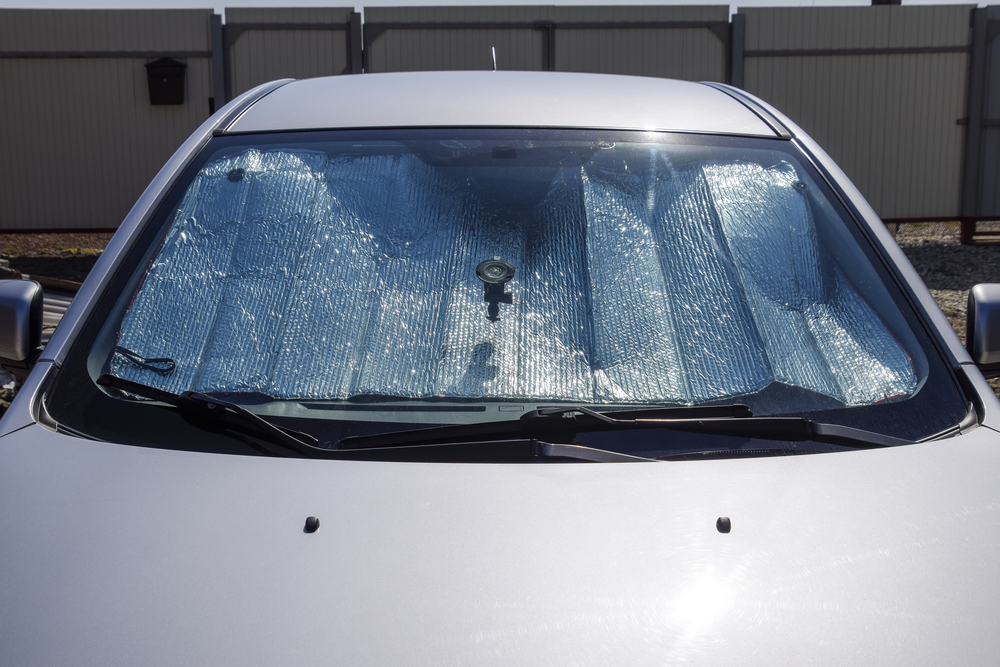2019 is set to be one of the hottest years in history. According to the National Oceanic and Atmospheric Administration (NOAA), the month of June has already set a global record as the hottest in 140 years. This weekend, more than half the country will be subjected to a heat wave with temperatures averaging north of 100 F during the day, and with temperatures in some cities barely dropping below 80 F at night.
Our cars are built to withstand anything nature has to throw at them, including extreme temperatures. But just as those who live in cold climates take extra measures for snow and ice during the winter, it’s equally important to prepare your car for the summer heat. If you live in any of the areas affected by the heat wave this weekend, consider these six tips to protect your vehicle (along with yourself and your loved ones) during a heat wave.
According to NOAA, June was the hottest month recorded globally.

Double-Check Your Batteries & Alternator
Heat combined with the vibrations that your car produces can break down internal battery cells. Make sure your battery is clamped down to minimize movement. Battery fluid can also evaporate and seep around the battery terminals during the summer, so clean off any corrosion you find on the cable ends and ensure that your clamps are securely fastened. If you have a battery older than 4 years, you might want to go ahead and buy a new one.
Summer also means a heavier load on your alternator, since it powers the air conditioning among other electrical components in your car, and charges your battery when the engine is on. Stresses from heat and an added load can push your alternator to the max and lead to failure, leaving you stranded on the side of the road and under the scorching sun. Before you go on any summer road trips, have a trusted mechanic test your alternator to make sure it’s efficiently powering your car.
Check Your Engine’s Fluids
Just like the human body, your car needs fluids, too. During the hottest days, the cooling system works overtime to keep the engine’s operating temperature within a safe range. It does this with the help of the coolant. Check the level in the coolant reservoir. If you notice that the coolant is below the lower level, have it inspected by your mechanic. Overheating can cause many mechanical and electrical systems to fail.
Engine oil is another vital fluid that you should check or change during extreme heat. Oil lubricates the moving components of the engine, creating less friction and lowering engine operating temperatures as a result. Check your dipstick to examine both the level and condition of your oil. Indicators on the dipstick show the appropriate level. If your oil mark is at a lower level, add a quart to top it off. If the oil is “thin,” almost water-like, and black, you’ll want to get an oil change right away.
Engine fluids should be checked regularly during hot weather conditions.

Inspect Your Cooling System
The cooling system is made up of different parts that work together to make sure your car stays at an optimum operating temperature. If one of these parts fails, the coolant cannot effectively carry heat away from the engine block. If you see a puddle of coolant underneath your parked car, you should get your cooling system inspected by a trusted mechanic right away. Or if you want a walk-through on how to check it yourself, readour guide on bad radiator symptoms and how to diagnose them.
Keep Your PSI Up
On hot days, streets’ temperatures can soar past 100 F, getting to a point where you could easily cook an egg right on the asphalt. Having under-inflated tires rolling on a hot surface increases your chances of a blowout due to added friction and overheating. Don’t ignore your tire pressure monitoring system (TPMS) when the light comes on, and visually check your tires whenever you get gas. A bulging sidewall could indicate low pressure.
Keep Your Interior Cool When Parked
Direct sunlight can turn your car’s interior into an oven in a matter of minutes. Interior panels like the dashboard readily absorb heat, making it difficult for the interior to cool quickly. When exposed to extreme sunlight, the interior trim (like leather seats) can get damaged. Buy a sunshade to deflect harmful UV rays, or try to park under the shade at the very least. This can put less of a load on your air conditioning system when cooling the car down.
Use a sun shade to keep your car’s interior cool.

Cool Your Car Down Properly
Some people may believe that turning your car on and immediately blasting the air conditioner is the best way to cool your car down quickly, but doing so can put a lot of added stress on your A/C system. Before you crank the A/C up, crack open your windows and turn on the blower with the vents open. Don’t turn your A/C on until after you’ve started driving. When cold air starts flowing through, raise your front windows. This video from Consumer Reports provides some helpful tips on how to cool your interior down efficiently.
Bonus Safety Tip: Don’t Leave Your Pets and Children in Your Parked Car
With news pouring in daily about pets and children dying in baking cars, it’s important to be more aware of this. If you must leave them in the car, be sure to leave the air conditioning on and make the interior as comfortable as possible. Cracking a window open won’t make too much of a difference when it’s scorching outside. Keep your loved ones safe.
Any information provided on this Website is for informational purposes only and is not intended to replace consultation with a professional mechanic. The accuracy and timeliness of the information may change from the time of publication.




























